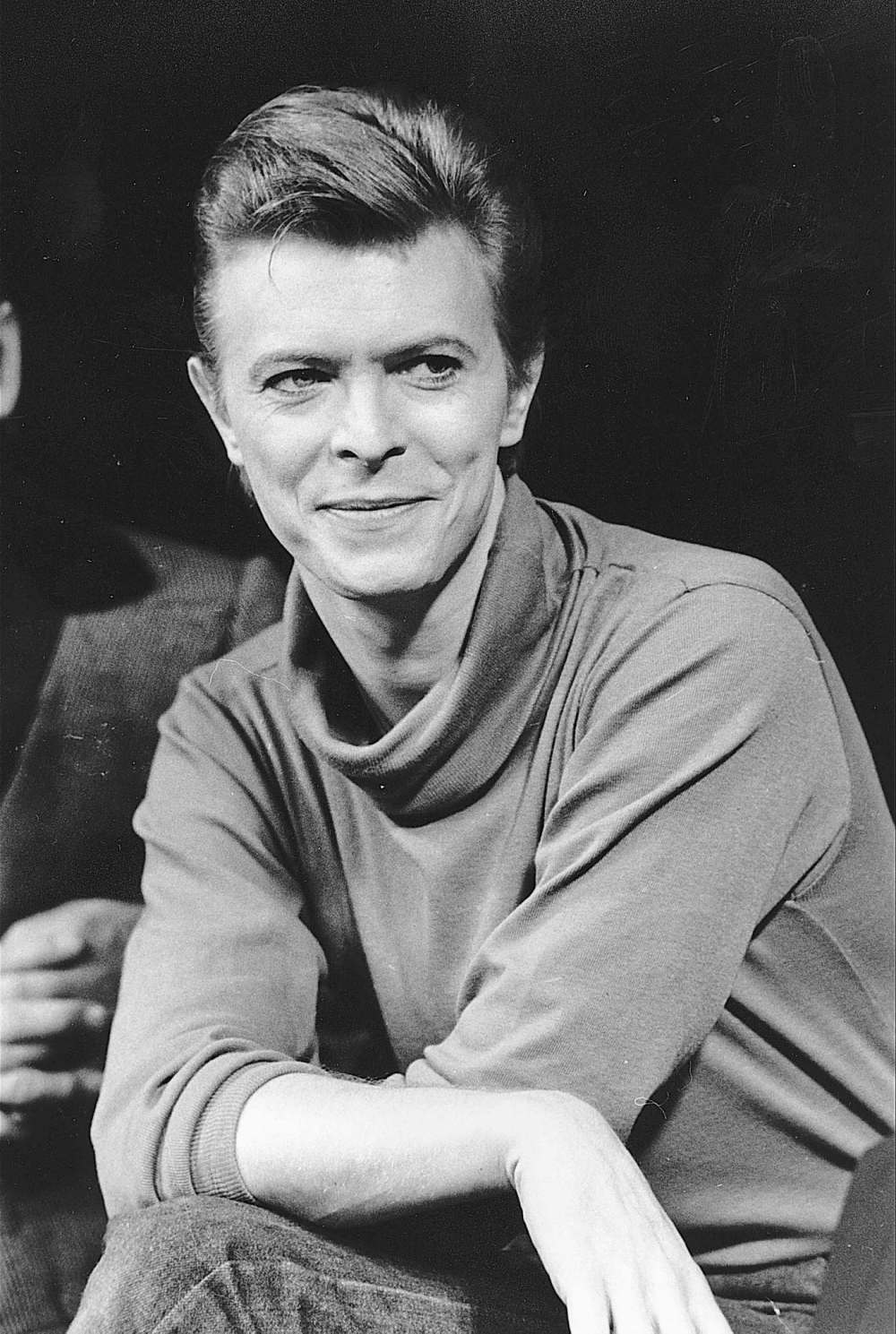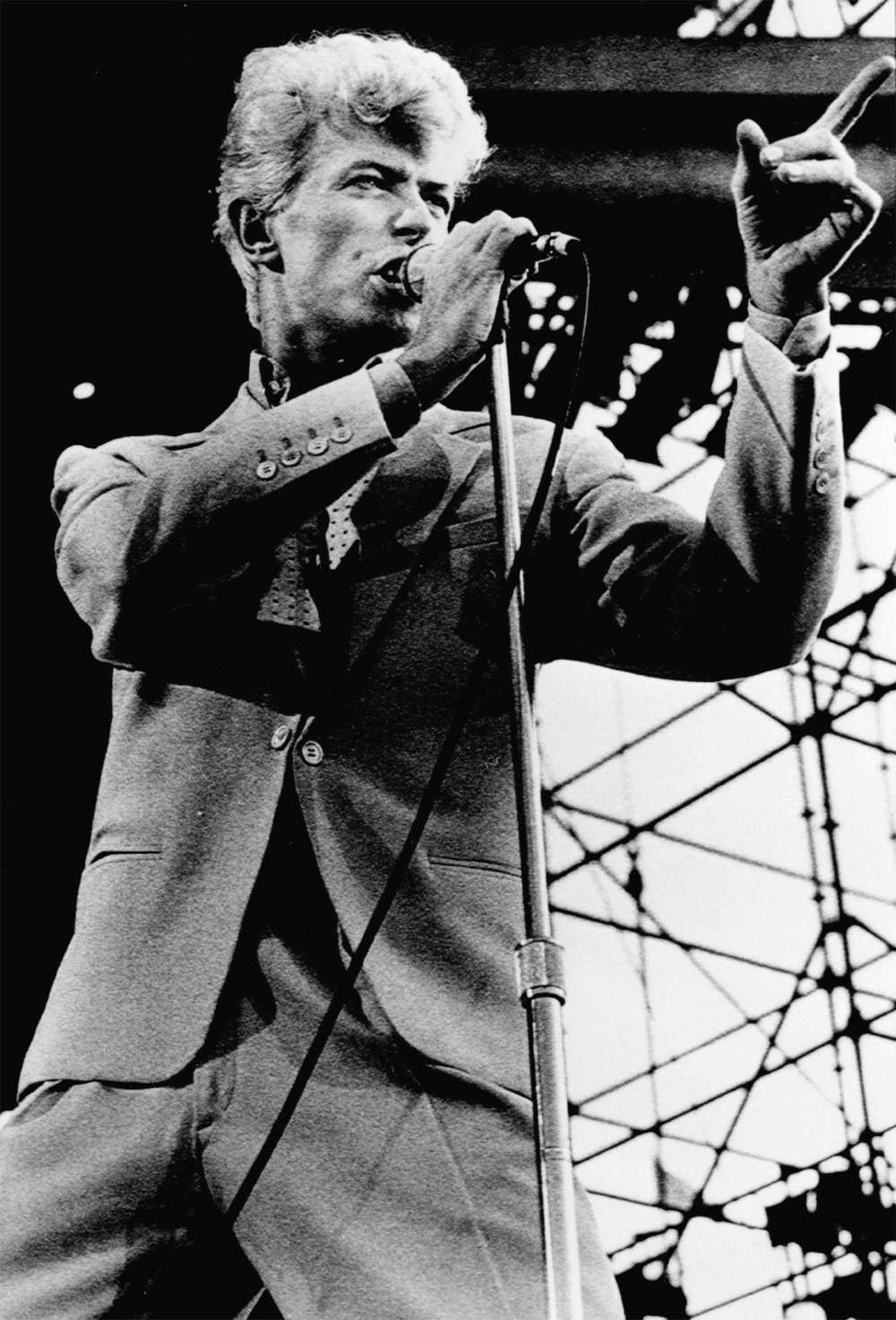Devoted to David
Bowie's death spurs author's musings on the man and his music
Advertisement
Read this article for free:
or
Already have an account? Log in here »
To continue reading, please subscribe:
Monthly Digital Subscription
$1 per week for 24 weeks*
- Enjoy unlimited reading on winnipegfreepress.com
- Read the E-Edition, our digital replica newspaper
- Access News Break, our award-winning app
- Play interactive puzzles
*Billed as $4.00 plus GST every four weeks. After 24 weeks, price increases to the regular rate of $19.00 plus GST every four weeks. Offer available to new and qualified returning subscribers only. Cancel any time.
Monthly Digital Subscription
$4.75/week*
- Enjoy unlimited reading on winnipegfreepress.com
- Read the E-Edition, our digital replica newspaper
- Access News Break, our award-winning app
- Play interactive puzzles
*Billed as $19 plus GST every four weeks. Cancel any time.
To continue reading, please subscribe:
Add Winnipeg Free Press access to your Brandon Sun subscription for only
$1 for the first 4 weeks*
*$1 will be added to your next bill. After your 4 weeks access is complete your rate will increase by $0.00 a X percent off the regular rate.
Read unlimited articles for free today:
or
Already have an account? Log in here »
Hey there, time traveller!
This article was published 27/08/2016 (3303 days ago), so information in it may no longer be current.
This past January, planet Earth was a bit more blue, as fans mourned the death of David Bowie with stardust in their eyes — memoirist, music writer and Bowie fanatic Rob Sheffield among them.

No stranger to writing about grief (his first memoir, 2007’s Love is A Mix Tape, saw him mourning the death of his wife through their shared love of music), Sheffield’s On Bowie began as a eulogy for Rolling Stone magazine. He then finished writing the book in a month, rationalizing that his hero managed to make the 1977 album Low, a fan favourite, in the same amount of time. The result is part biography, part retrospective and part portrait of the writer himself as a young American, as Sheffield fuses Bowie’s rock history with his own rock fandom.
A passionate foray into fandom is customary of Sheffield’s work, and it’s especially effective here, as the book doesn’t get bogged down in his encyclopedic knowledge of the Thin White Duke’s back catalogue or biographic details (although tidbits of those are certainly here). Instead, the writer’s personal experiences with Bowie’s work are given as much attention as the albums themselves, a highlight of which is Sheffield debating whether to get up and dance to an advance review copy of 2013’s The Next Day in a room kept under lock and key, lest the flailing of his thin white limbs traumatize the security guards watching on camera.
Though Sheffield’s sincere love for Bowie permeates every page, he remains an informed critic, unafraid to chronicle poor decisions and missteps made by the musician, particularly in the 1980s; he cites 1984’s Tonight as “a career-freezing disaster” that would have ruined a lesser artist, and exhibits genuine bemusement about the endurance of Jareth the Goblin King (played by Bowie in the 1986 film Labyrinth) as a cultural touchstone for many fans.
For Sheffield, Bowie’s own music superfandom is exactly what made him so great. Affectionately dubbing the rock icon as not only musically curious, but as “the ultimate rip-off artist,” Sheffield describes a master craftsman not afraid to borrow and repurpose the necessary tools from other artists to create something that was undeniably his own — like a spaceship meticulously cobbled together out of Earth materials, only to be destined for life on Mars.

The collage-like nature of Bowie’s creative process also extended to his persona, as Sheffield examines a chameleon, a chimera, a cracked actor who fantasized about what it meant to inhabit a role, instead of being preoccupied with the role itself. “They were all facets of me,” Bowie said in 1975. “I couldn’t decide whether I was writing the characters or the characters were writing me.”
As Sheffield points out, although the artist seemed inauthentic to many a disapproving critic, Bowie proved time and again that his artifice and his sincerity were not mutually exclusive. That Bowie used music as a way to take himself out of himself, Sheffield muses, is perhaps why he always seemed so alien, his strangeness polarizing critics but endearing fans to him all the more.
At the same time, Sheffield remains fascinated with how someone who built an entire career on his otherworldliness somehow remained so invested in “the lust for human connection.” Deftly pointing out how the hero of Starman isn’t the eponymous character, but the fans, Sheffield says the music “just gives them an excuse to bond.”
Clearly what made Bowie special was not only the connection he made with fans, but the bond he allowed fans to make with each other. Ultimately, On Bowie cements Rob Sheffield as the fan who told the world how Bowie formed these connections, and reveals why music devotees will value Bowie’s power to charm long after he’s waved bye-bye.
Nyala Ali writes about race and gender in comics and music.


